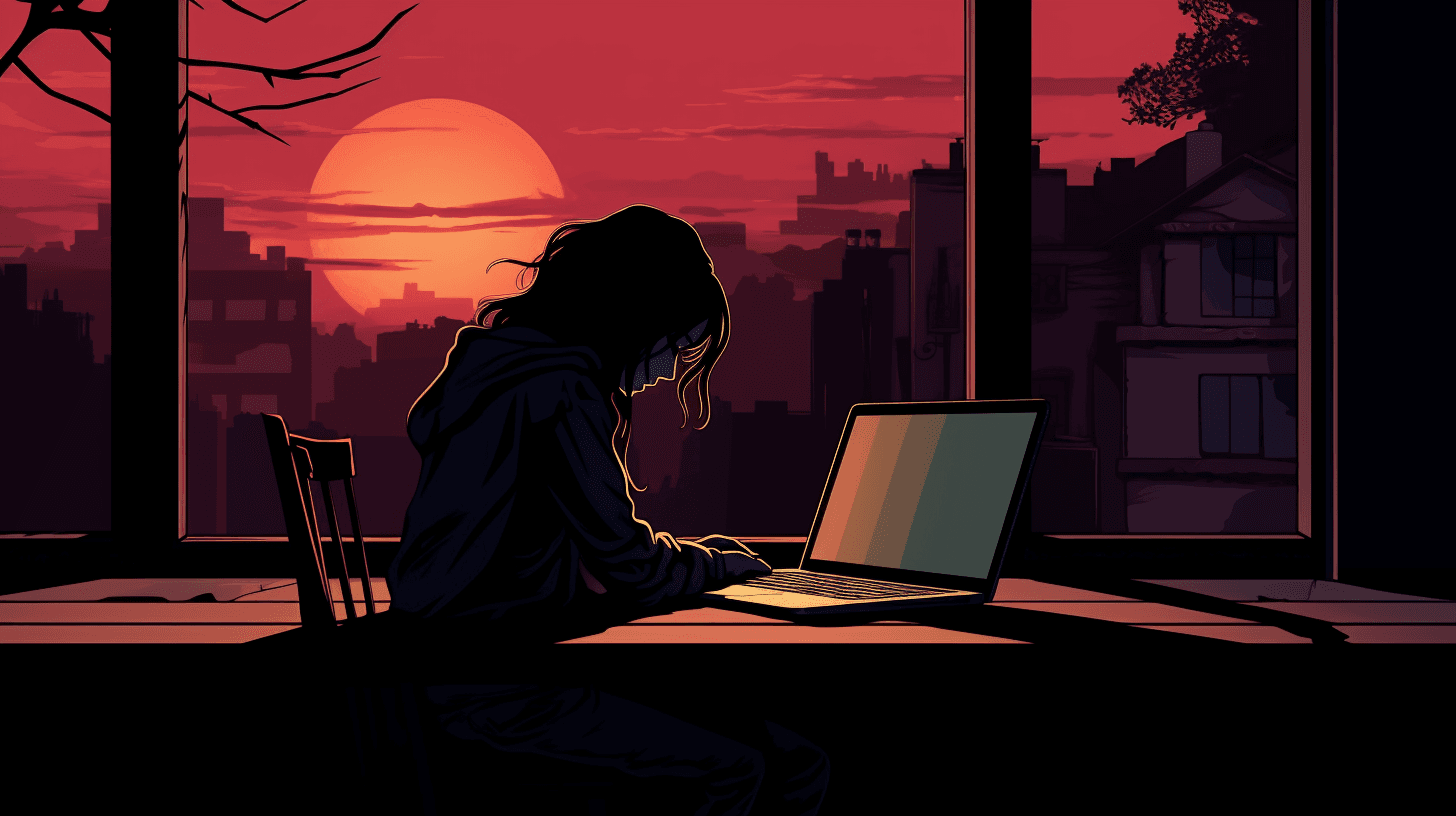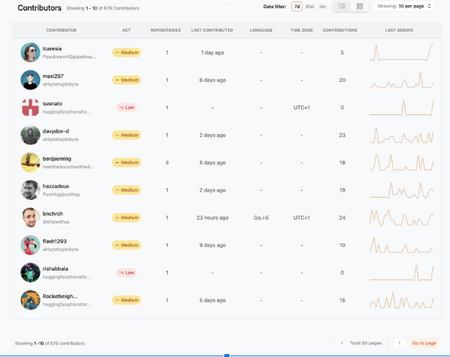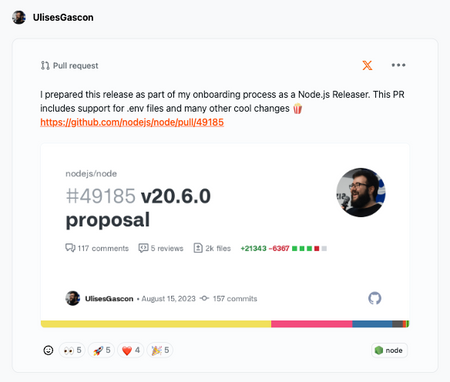
#maintainers
#open source
The Lonely Journey of Open-Source Maintainers: A Call for Connection and Recognition
BekahHW
5 mins read

It’s lonely, being a maintainer. I’ve heard this sentiment multiple times in the last couple of months. Maintainers, especially solo maintainers, are stuck in a cycle of reviewing PRs, supporting community, navigating spam and angry messages, coding, project management, product marketing, and more. Even reading the previous sentence could make you feel tired. And imagine doing that alone.
Combatting Maintainer Loneliness
It’s no secret that maintainer burnout is an epidemic in the open-source community. Contributors come and go, but maintainers bear the long-term responsibility for the project's health and sustainability. This burden grows exponentially with the project's popularity, leading to a form of burnout that leaves maintainers with emotional exhaustion and a decreased sense of accomplishment. One of the major contributors to maintainer burnout is loneliness.
As a maintainer, it's important to remember that you're not alone in this journey, and that there are always other maintainers and contributors willing to help. - Adriano Raiano, maintainer of i18next
Humans are meant to be part of a community. Communities can help to bear the responsibility, emotional labor, and to acknowledge the challenges that come along with being a maintainer. It’s not just about sharing the labor, though. It’s about connecting with other people who understand what you’re going through. Without getting too much into the science of things, the neurons in our brains activate when we relate to a story someone tells. When we hear and connect with stories, our bodies release oxytocin, a neurochemical that helps us to connect with others. The point of all of this is to say that it’s important to share our experiences with others who understand the challenges that we’re facing.
Finding connections and communities of people who can share their stories as well, can help to decrease the incidence of maintainer burnout. When we realize that we’re not isolated and alone in our feelings of burnout or in the challenges that we’re facing, we’re more likely to feel a sense of belonging and satisfaction.
Identifying the Right Kind of Support
Navigating the journey of a solo maintainer can be complicated by “contribution farming,” low quality or spammy PRs, and lack of maintainer bandwidth to keep up with the issues and PRs of the community, not to mention the "invisible labor" that maintainers perform, such as community management, documentation, and issue triaging. But when open source projects have the right contributors, pressure on maintainers is alleviated both because the right contributors often take on some of the invisible labor and they require less labor to support.
I have noticed a large difference in my enthusiasm and activity in a project when someone else is making contributions, asking questions, or otherwise thinking about the problem the project is trying to solve. When the project is stagnant, or the issues coming in are fairly pedestrian, I am less interested. - Sean Walberg
Collaboration and community can help maintainers find the right contributors, but there’s also an option for maintainers to recruit or identify contributors who could be a good fit for their project. I know, it’s a Catch22. We say that maintainers are overwhelmed and don’t have time for additional tasks, but I’m telling you that adding an additional task will make life easier for them. It’s an investment in the future.
Identifying project-fit contributors by their technical capabilities, proximity to the project, and the type of contributions they’re already making, allows maintainers to build a community that benefits the project and the maintainer.
The Return of Social Coding
You can have a good community and still feel lonely though. Sometimes this loneliness stems from a lack of recognition. The work of maintainers matters, but that value often isn’t expressed by users. In the era of social coding, there’s an opportunity for maintainers to showcase their contributions, whether that’s code, issue resolution, community engagement or something else, to put their hard work in the spotlight and open the door to connect with other maintainers, and to be recognized by contributors.
When you tell your story, it humanizes you. When maintainers feel seen and heard, they’re more likely to have positive interactions with the community, which can lead to a ripple effect, creating a culture of recognition and support that everyone in the open-source ecosystem can benefit from. But more importantly, it can help to decrease the pervasive loneliness that many maintainers feel.
Finding the Right Connections
Finding the right connections can be challenging, but opening the opportunity to connect with others can be the difference between being lonely and feeling supported.
Share Your Story
Start by talking about your work, and sharing the highlights of what you’re most proud of. When you share your story, you’re inviting someone else to share theirs.
Identify the Right People for You
Are there some maintainers out there you’d like to connect with? Have you considered starting a community of maintainers who might be able to support each other, not technically speaking, but as human beings? If you’re not ready to reach out to them yet, keep a list of all the maintainers whose stories you’d like to hear.
Or maybe you need help and the right contributors, and that’s your top priority. Create a list of contributors you think would make a great fit for your project and then reach out to them as you have the bandwidth.

Connect
It can be hard to reach out to others, but if you’ve shared your story and you know the people you’d like to connect with, that can make it easier. Strengthen your network by requesting a connection.
In an industry where maintainer loneliness is too common, connection, community, and recognition can provide hope and humanize maintainers. Remember that recognition is a form of contribution too—one that can make all the difference in a maintainer's journey.
If you want to connect with me, please follow me and send me a connection request: @BekahHW and if you'd like to show support for OpenSauced, head over to our Product Hunt page and show us some love today!

BekahHW
Bekah graduated from a coding bootcamp in May of 2019 and since then has spent time as a frontend developer, started the Virtual Coffee tech community, spent time in DevRel and has continued to mom her four kids. She currently co-hosts the Compressed.fm and Virtual Coffee podcasts, lifts heavy things in her free time, & works as the Developer Experience Lead at OpenSauced.
Recent Posts

bdougie
2 mins read
OpenSauced joins Linux Foundation, making AI-powered open source analytics freely available while expanding beyond GitHub to serve the broader open so...

#kubernetes
John McBride
5 mins read
How the OpenSauced engineering team made a near-zero downtime migration to Microsoft Azure



